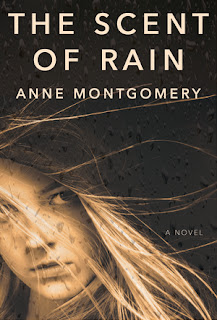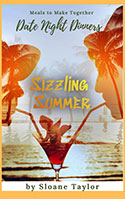UMPIRE SCHOOL: A TWISTED LOVE STORY
June 11, 2018 | Author Friend Promo
by Anne Montgomery
I attended Bill Kinnemon’s Umpire School in 1981. Major League Umpire John McSherry – who would die while working home plate in Cincinnati on opening day in 1996 – sits in the front row, third from the left. His partner in crime, minor leaguer John Higgins, sits behind him to the right. I’m in the picture, too. See if you can find me.
I entered a tiny office in St. Petersburg, Florida, signed the legal forms, and was escorted to a single-story cottage across the road that fronted the facility. Unlike all but a handful of the 105 students registered for Bill Kinnemon’s Umpire School Class of 1981, I would have my own room, since putting me in the dorm with the guys was obviously out of the question.
I plumped the thin pillow, leaned back on the cot, and scanned the schedule that would direct my life for the next five weeks. Baseball rules classes, on-field clinics, and scrimmages in which students would participate as both umpires and players. My stomach twisted at the thought of anyone seeing me in the field. I’d never played baseball or softball. I could already hear the “she throws like a girl” jeering and wondered if there was any way I could actually avoid having to throw a baseball.
The next morning, we campers lined up in rows. “He’s out!” I called, straightening to my full height, bringing my left arm horizontally across my chest and my right up and bent at the elbow. Both hands were clenched in tight fists. Out calls emanating from scores of wannabe umpires echoed across the dusty field.
“Jee…sus Christ! That was pathetic!” senior instructor Joe Brinkman screamed, grabbing the bill of his cap and slapping it on his leg. “Sound like you mean it!”
Furtively eyeing one-another, we bent over in unison again, hands splayed just above our knees, staring at an imaginary base, pretending the runner and throw were arriving almost simultaneously.
“He’s out!” I joined the others, glad I didn’t have a high voice. I might have been able to blend in, had it not been for the long, auburn ponytail. Cutting my hair short might have been prudent.
Major League Umpire John McSherry, 375 pounds, walked unsteadily through the lines of aspiring umpires, saying nothing, looking decidedly uncomfortable: the result of some especially painful dental work and a night of bubbly self-medication.
“He’s out! He’s out! He’s out!” We screamed over and over, working on our posture and intonation. McSherry wiped a hand across his face: the February Florida heat causing spots of perspiration on his red cheeks. As I bent down in preparation for another out call, he passed by, without even a glance.
It was not until later that night, when my name was announced during dinner, that McSherry sat up and stared. “Anne? Anne? There’s a girl here? You’re kidding,” he said, turning to the Minor League instructor who stood by his side. John Higgins pointed me out. McSherry looked over and waved his hand in the air as if the whole idea was simply too ridiculous to consider.
The days were grueling: long and hot, on the field and in the classroom. I worked hard to be just one of the boys.
One of the tenants of umpire school was that all campers should have an equal opportunity to be treated badly. The logic being that umpires will, by nature, be victims of disdain when working games, and if you can’t handle the abuse in school, you will never survive on the field.
My big moment came one afternoon. Campers were sometimes picked to perform certain special tasks, and, now, it was my turn.
“Butler!” McSherry called out, making sure my fellow fledgling umpires heard. “Bring the balls up to field two for this afternoon’s drills.”
“Yes, sir!” I said, chin up in my best imitation of an Army recruit.
I’d watched him berate campers, throwing his hat, and tramping around the dusty diamond like a bull with hemorrhoids. He’d go nose to nose with these grown men and they would shrivel. In fact, 12 campers would simply grab their gear and quit, walking away rather than endure the punishment.
Fifteen minutes prior to the afternoon drill session, I stood at the door of the equipment shed. Higgins, who everyone called Higgs and who seemed to be McSherry’s Sancho Panza, smiled as he leaned up against the wall, arms folded across his chest.
“I’m here to get the balls for field two,” I said. Higgs was cute with bright blue eyes.
“Don’t worry about it.” He smiled. “They’re already up on the field.”
“Really? But John insisted that I bring them up.”
“Nope. You’re good.”
I was one of the first people at the field, so I waited and watched as the group assembled, the last few stragglers running full speed up the dirt road, because being late was never, ever acceptable.
“OK, we’ll be doing first base drills,” McSherry said. “It’s about listening to the ball hit the glove and seeing the foot on the bag. Listen and look. That’s what you’re going to do. Got it?”
“Yes, sir!” the group called out as one.
Then McSherry paused rather dramatically. “Who’s got the balls?” Silence.
“Who’s got the balls?” he yelled louder. “Who was supposed to … Butler! Where are the balls?”
“I … I went to get them and Higgs …”
“Where are the fucking balls?”
I stared at Higgs. He avoided my gaze. “I don’t know,” he said. “I saw them in the shed.”
McSherry squinted at me. “Get ‘em, Butler! And while you’re gone, your friends here will run laps around the field.”
My eyes grew wide.
“Start now, gentlemen! Run! Run!”
I bolted across the field and down the hill faster than I’d ever moved in my life. But I did not get away quickly enough to avoid hearing the curses that were being hurled my way.
When umpire school finally came to an end after five long weeks, it was, strangely, very hard to leave. It was as if we all suffered from Stockholm Syndrome, where we had learned to love our captors and wished to emulate them.
Like most of the other campers, I flirted with those professional baseball dreams, even though a job would have meant life in the low minors, shuffling from tiny town to tiny town, little pay, low budget motels, and the built-in cruelties umpires endure daily.
When it came to picking the campers who would be recommended for that life, most of the school staff members decided it would not be a good idea to send a woman up the line. It was 1981, after all. It’s interesting, and came as a bit of a surprise, that I had a friend in John McSherry. I would find out years later that he was the only one who rated me in the top 15. But with most of the other staffers positioning me much lower on the list, my eventual ranking was 32. The top 30 candidates were certified for duty in Minor League instructional camps. I was told that McSherry thought I had good officiating instincts.
Did I deserve a job? Probably not. About ten days into camp, I injured a hamstring, which limited my mobility. And, in all honesty, I have always been a horrible runner, which just about anyone who’s ever officiated with me can attest. Apparently, one day my awkward stride caused McSherry to growl. “Jesus Christ, Higgs! She runs worse than I do!”
How do I know this? Five years after I attended umpire school, I ran into John Higgins. Then, I married him and John McSherry was there with us to celebrate.
Here’s a peek into my latest novel for you.
Two Arizona teens find their fates intertwined. Are there any adults they can trust? Can they even trust each other?
Rose Madsen will do anything to keep from being married off to one of the men in her Fundamentalist Mormon (FLDS) community, even endure the continued beatings and abuse of her mother. But when her mentally handicapped baby sister is forced to strangle the bird she loves at the behest of the Prophet, Rose frees the bird and runs away.
Adan Reyes will do anything to escape the abusive foster care system in Phoenix, even leaving his good friends and successful high school athletic career behind him. Ill-prepared for surviving the desert, Adan hits the road only to suffer heat stroke. Found by a local handyman, he catches a glimpse of a mysterious girl—Rose—running through town, and follows her into the mountains where they are both tracked and discovered by the men of the FLDS community.
With their fates now intertwined, can Rose and Adan escape the systems locking them into lives of abuse? Will Rose be forced to marry the Prophet, a man her father’s age, and be one of dozens of wives, perpetually pregnant, with no hope for an education? Will Adan be returned to the foster home where bullying and cruelty are common? Is everyone they meet determined to keep them right where they belong or are some adults worthy of their trust?
Anne Montgomery has worked as a television sportscaster, newspaper and magazine writer, teacher, amateur baseball umpire, and high school football referee. She worked at WRBL‐TV in Columbus, Georgia, WROC‐TV in Rochester, New York, KTSP‐TV in Phoenix, Arizona, ESPN in Bristol, Connecticut, where she anchored the Emmy and ACE award‐winning SportsCenter, and ASPN-TV as the studio host for the NBA’s Phoenix Suns. Montgomery has been a freelance and staff writer for six publications, writing sports, features, movie reviews, and archeological pieces.
When she can, Anne indulges in her passions: rock collecting, scuba diving, football refereeing, and playing her guitar.
Learn more about Anne Montgomery on her website and Wikipedia. Stay connected on Facebook, Linkedin, and Twitter.








Interesting post! Thanks for sharing and best of luck with The Scent of Rain! Leigh
On June 11th, 2018 at 7:57 am